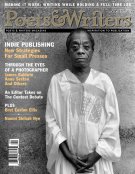On October 7, 1955, six poets gave a public reading at the Six Gallery, a converted auto garage on Fillmore Street, in San Francisco, that is still considered one of the most important events in twentieth-century American poetry. Michael McClure, Allen Ginsberg, Gary Snyder, and Philip Whalen all read new poems, and Philip Lamantia read the work of John Hoffman, who had recently died of a drug overdose. The event was hosted by poet Kenneth Rexroth, who was nearly fifty and eager to show off the talents of his young, and heretofore unknown, friends. There were about a hundred and fifty people in the audience, including Jack Kerouac, who brought wine and shouted encouragement to the readers. Ginsberg, who was twenty-nine at the time, was next to last. When he launched into the long, mad, incantatory poem titled “Howl,” some say American poetry was changed forever.
“I think we all realized that ‘Howl’ drew a line in the sand,” says McClure, who had met Ginsberg the summer before, at a party given by W.H. Auden. “That was the first reading of the Beat-Generation poets. At the time there were about twenty poets who would say they were poets, but we opened the floodgates. Thousands and thousands of people wanted to write poetry.” Peter Hale, secretary of the Allen Ginsberg Trust, a foundation that oversees the poet’s literary legacy, agrees, saying that the poem “took poetry out of academia and brought it to people on the street. It helped popularize poetry.”
Fifty years later, a number of organizations are planning special events on October 7 to commemorate the anniversary of the reading. The Great Salt Lake Book Festival, sponsored by the Utah Humanities Council, will stage a reenactment of the Six Gallery readings, featuring poets Alex and Sara Caldiero, Ken Brewer, Jean Howard, Gino Sky, and Melissa Bond. Litquake, an annual literary festival held in San Francisco, will also feature a reading celebrating “Howl.”
The poem’s popularity reaches far beyond the United States. In England, the anniversary will be celebrated with “Howl for Now” at the University of Leeds. The event will feature a reading, a series of musical responses to the poem, a discussion of its historical significance, dramatic monologues based on eyewitness descriptions of the first reading, written by Kerouac and McClure, and an exhibition of artworks inspired by “Howl.”
“Allen’s poem blew up everything in some profound way,” says Sam Kashner, whose memoir, When I Was Cool: My Life at the Jack Kerouac School, tells the story of how he left his home on Long Island to become one of the first students at the Jack Kerouac School of Disembodied Poetics at Naropa University in Boulder, Colorado. “I think that it sort of raised the bar. It also took the music and language of the Old Testament and of the synagogue and defiled it in an exciting way. There was a mad-prophet element. Allen dug the attention, dug the poem he’d created, like a new race of men and women that he’d spawned.”
Of course, when the poem was published, in 1956, by City Lights Books, obscenity charges were filed against publisher Lawrence Ferlinghetti. A highly publicized trial in San Francisco concluded in 1957, when the judge ruled that Howl and Other Poems had “redeeming social value.”
“In a way, that obscenity trial was the best thing that could have happened to Allen,” Hale says. “He couldn’t buy that kind of publicity.” But most agree that the lasting renown of “Howl” has little to do with the charges that threatened to ban the work nearly fifty years ago. “I did go to Columbia University to hear him read the poem on the twenty-fifth anniversary,” says Kashner. “It was almost like hearing a great rock group perform their one great song. But that poem still has X-ray vision. It can see through walls; it’s a poem to heal and change lives. It’s a profoundly great work.”
Arlene McKanic is a freelance writer living in Jamaica, New York.








